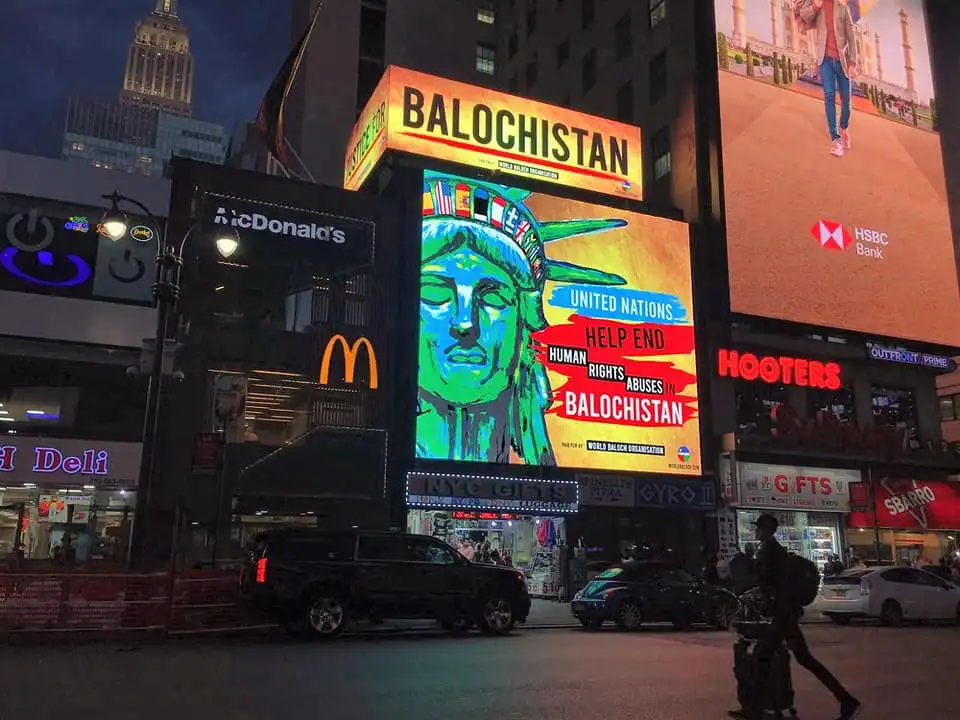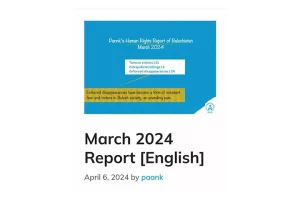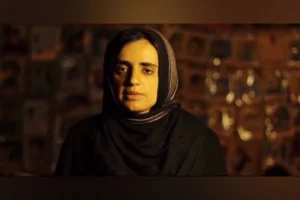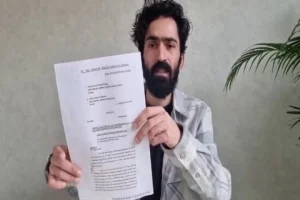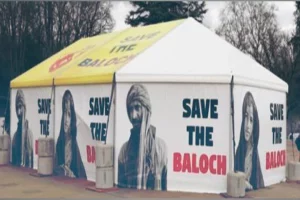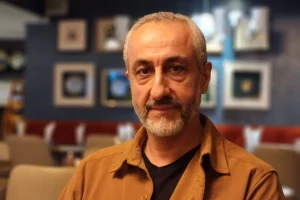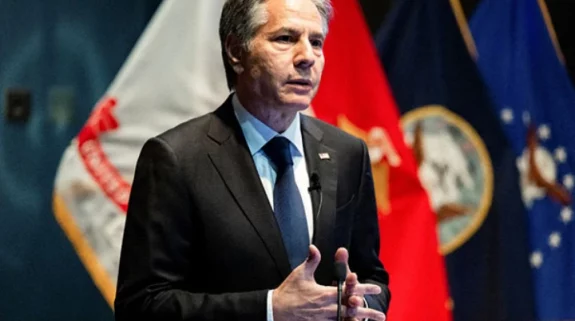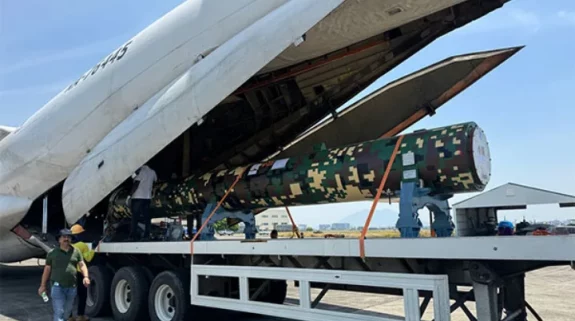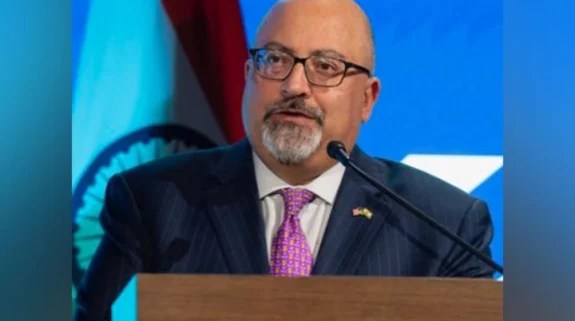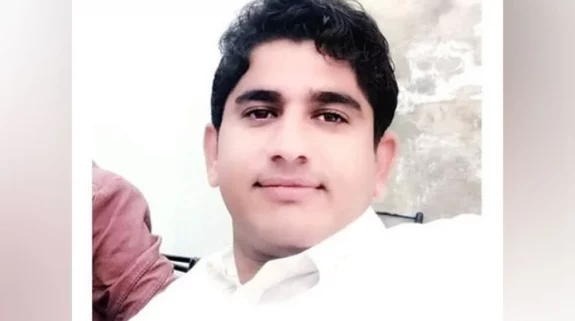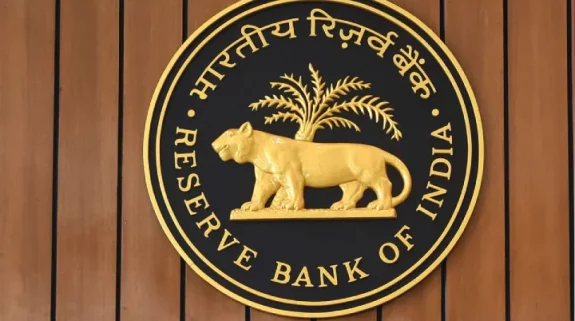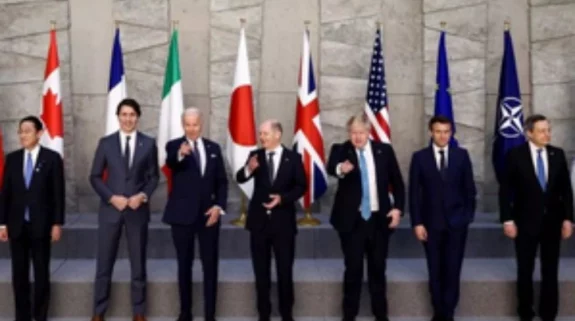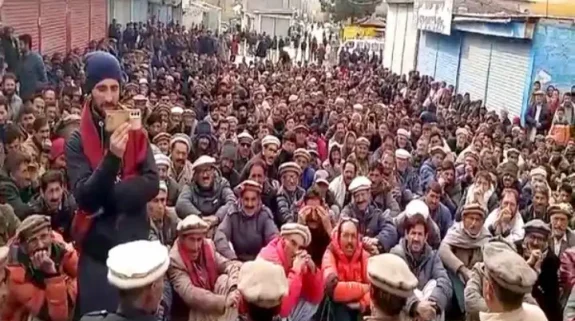On Tuesday, the president of the Baloch American Congress (BAC), Tara Chand, held a virtual meeting with US Congressman Greg Steube seeking support for Balochistan—Pakistan's largest province fighting for self-determination since 1948.
Tara Chand—a former minister in Balochistan who fled the country, told Congressman Steube: “Help to Balochistan will be in the long-term interests of the United States. The people of Balochistan have long struggled for the right to self-determination and this is the main reason we are seeking your help. We hope you will introduce a bill to that effect".
In a media statement, Tara Chand said that human rights violations by the military in Balochistan began once Pakistan's generals made plans to give away the port city of Gwadar to China. He told Steube: "China had helped Pakistan become a nuclear power. Otherwise, Pakistan cannot even manufacture a bicycle, let alone a nuclear bomb. In return, the military generals have given Balochistan to China on a silver platter".
VIDEO captured from Chagai #Balochistan shows Paramilitary forces punishing Baloch labourers in desert heat during the month of Ramadan.
The labourers can be seen rolling down a sandy hill while being beaten by a soldier.
This comes after the recent killings in #Chagai by the FC. pic.twitter.com/TtD6FVRXd2— WBO🕊️ (@WorldBalochOrg) April 19, 2022
The BAC president also took up the overlooked issue of enforced disappearances plaguing the Baloch community and requested Steube to pressurise Pakistan to account for thousands of victims of enforced disappearances.
Officially, the US has reiterated over the years that it does not support independence for Balochistan.
This has not, however, deterred Baloch groups who keep drawing American attention to human rights violations by the Pakistani security forces through enforced disappearances and arbitrary killings of the Baloch people.
In an article in the Toronto Sun, written soon after the eye-grabbing Shari Baloch suicide bombing that killed three Chinese teachers in Karachi, Pakistani journalist Tarek Fatah says: "A low-level insurgency has devastated the lives of the Baloch, who are today not just victims of the Pakistan military, but also the Chinese government that has taken over vast areas including the port city of Gwadar, where an apartheid-like separation of citizens has been enforced, with the indigenous Baloch at the bottom of the ladder".
In exile in Canada, Fatah—a well-known journalist, has compared the violent human rights situation in Balochistan to that of East Pakistan, which eventually led to the creation of Bangladesh in 1971 and the dismembering of Pakistan into two countries.
Fatah adds that Balochistan's armed struggle, led by physician Dr Allah Nazar, is inflicting a heavy toll on Pakistani troops and their Chinese financiers. Fatah underlines that the Baloch insurgency has been completely ignored by the world media, which is caught up in the Russia-Ukraine conflict.
The small Baloch community in North America has often resorted to interesting ways to grab attention. In 2019, it flew a plane around the Statue of Liberty in New York with a banner that read: “UN must help end human rights abuses in Balochistan”. The aim was to influence world leaders gathered at the 74th session of the UN General Assembly about the Baloch crisis.
In an article in the Middle East Institute (MEI) in 2019, Philip Kowalski pointed out how the World Baloch Organization (WBO) had installed an attractive billboard at the Times Square on 2018 New Year celebrations. The minimalistic sign said: "Free Balochistan from human rights abuses by Pakistan".
The MEI article highlighted the fact that the Baloch liberation movement is getting counted. It said: "the stateless nation of Balochistan, a hitherto relatively unknown corner of South Asia divided between Pakistan, Afghanistan, and Iran, is rapidly emerging from obscurity".
The Baloch activists also ensured that during then prime minister Imran Khan's visit to meet Donald Trump, Washington had trucks moving around with giant TV screens urging Trump to bring an end to enforced disappearances of the Baloch community.
The Baloch self-determination movement, that is gaining steady visibility across the world has also put the spotlight on China's exploitative investments in the region. Unintended consequences of China's entry into Balochistan has not only sucked its citizens into a vortex—making them sitting ducks for Baloch discontent but has also helped to amplify the Baloch freedom struggle across the world.
Read More






